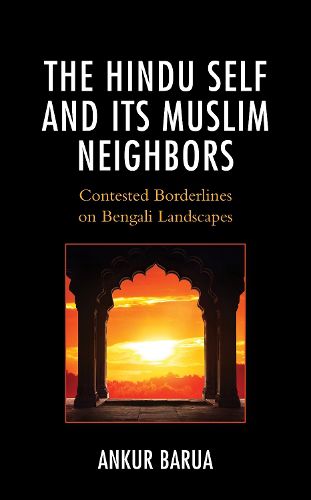Readings Newsletter
Become a Readings Member to make your shopping experience even easier.
Sign in or sign up for free!
You’re not far away from qualifying for FREE standard shipping within Australia
You’ve qualified for FREE standard shipping within Australia
The cart is loading…






In The Hindu Self and its Muslim Neighbors, the author sketches the contours of relations between Hindus and Muslims in Bengal. The central argument is that various patterns of amicability and antipathy have been generated towards Muslims over the last six hundred years and these patterns emerge at dynamic intersections between Hindu self-understandings and social shifts on contested landscapes. The core of the book is a set of translations of the Bengali writings of Rabindranath Tagore (1861-1941), Kazi Nazrul Islam (1899-1976), and Annada Shankar Ray (1904-2002). Their lives were deeply interwoven with some Hindu-Muslim synthetic ideas and subjectivities, and these involvements are articulated throughout their writings which provide multiple vignettes of contemporary modes of amity and antagonism. Barua argues that the characterization of relations between Hindus and Muslims either in terms of an implacable hostility or of an unfragmented peace is historically inaccurate, for these relations were modulated by a shifting array of socio-economic and socio-political parameters. It is within these contexts that Rabindranath, Nazrul, and Annada Shankar are developing their thoughts on Hindus and Muslims through the prisms of religious humanism and universalism.
$9.00 standard shipping within Australia
FREE standard shipping within Australia for orders over $100.00
Express & International shipping calculated at checkout
In The Hindu Self and its Muslim Neighbors, the author sketches the contours of relations between Hindus and Muslims in Bengal. The central argument is that various patterns of amicability and antipathy have been generated towards Muslims over the last six hundred years and these patterns emerge at dynamic intersections between Hindu self-understandings and social shifts on contested landscapes. The core of the book is a set of translations of the Bengali writings of Rabindranath Tagore (1861-1941), Kazi Nazrul Islam (1899-1976), and Annada Shankar Ray (1904-2002). Their lives were deeply interwoven with some Hindu-Muslim synthetic ideas and subjectivities, and these involvements are articulated throughout their writings which provide multiple vignettes of contemporary modes of amity and antagonism. Barua argues that the characterization of relations between Hindus and Muslims either in terms of an implacable hostility or of an unfragmented peace is historically inaccurate, for these relations were modulated by a shifting array of socio-economic and socio-political parameters. It is within these contexts that Rabindranath, Nazrul, and Annada Shankar are developing their thoughts on Hindus and Muslims through the prisms of religious humanism and universalism.